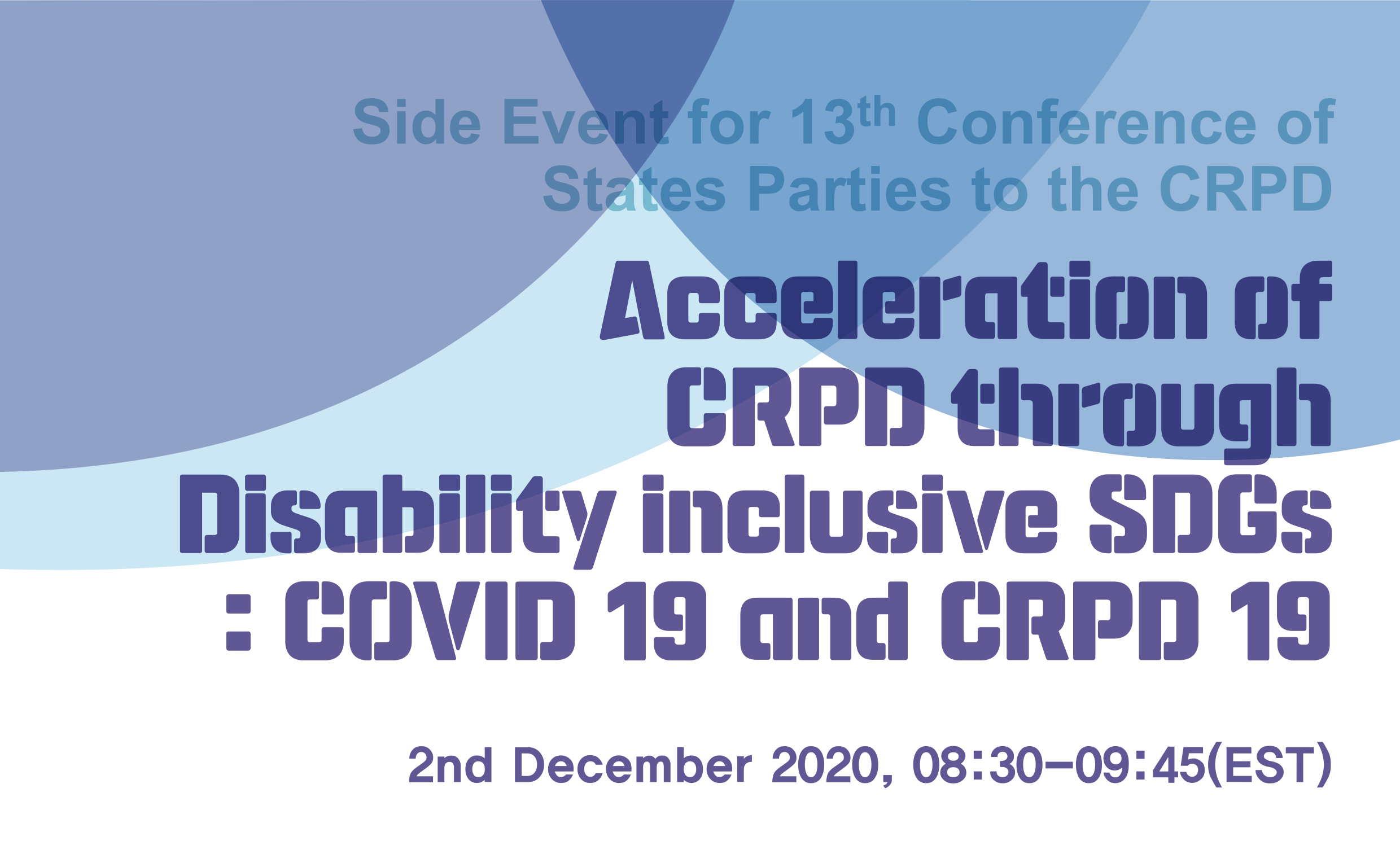
The outbreak of the pandemic signified mainstreaming disability perspectives in general policies and guidance to ensure leaving no one behind. Persons with disabilities are one of the most vulnerable groups to Covid-19. Especially, numerous human rights violation, high infection and mortality rates were observed in the institutions from all around the world during the Pandemic.
The side event was organized during the 13th Conference of State Parties to the Convention on the Rights of Persons with Disabilities (COSP13) to look into the worldwide experiences of the persons living in the institutions (group homes, nursing homes, psychiatric hospitals, etc.), to learn the assessment of the findings from international survey 'COVID-19 and Disability Rights Monitoring', and to seek the ways to fulfill the rights of persons with disabilities especially related to CRPD 10, 11, and 19. The program also illustrated the way to the society where 'leaving no one behind', an international promise which cannot be postponed under no circumstances.
Main takeaways from the event:
1. All countries and DPOs must establish an emergency deinstitutionalisation policy and guarantee financial and human resources for a comprehensive system promoting shift from institutions to community integration. The policy must make it possible to realise the universal right to independent living.
2. In order to transform the culture of discrimination and hatred reinforced by segregated institutions on the basis of disability, age, gender, etc., all countries should immediately ban new admissions and cease the development of new or expansion of existing institutions and policies.
3. The governments should immediately develop and implement a “Bottom-up” emergency deinstitutionalisation strategy and preliminary disaster response plan with meaningful advice and participation from people living in institutions and advocacy organisations representing them. In addition, consideration of human rights should be given to monitoring and data collection on the subsequent COVID-19 infections in institutions.
4. Education of public officials, members of the National Assembly, the media, and the general public must be expanded to increase awareness and understanding of the deinstitutionalisation, and to decrease social discrimination against the persons with disabilities and their support providers.
Partners:
Permanent Mission of the Republic of Korea to the United States, Ministry of Health and Welfare of the South Korea, Korean Disability Forum, European Network on Independent Living
 Welcome to the United Nations
Welcome to the United Nations